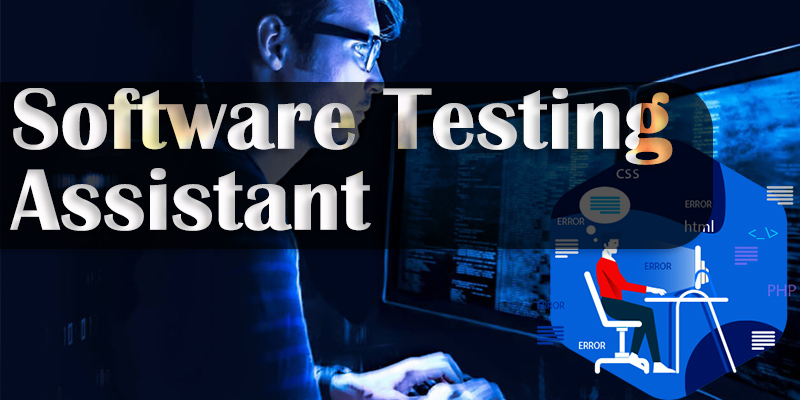iti
4 April 2025

ITI Software Testing Assistant Syllabus (English)
Course Overview
- Trade Name: Software Testing Assistant
- Duration: 1 Year (2 Semesters)
- NSQF Level: Level 4
- Eligibility: 10th Grade Pass with Science and Mathematics
- Objective: To train candidates in testing software applications for functionality, performance, and quality, equipping them for roles as software testers, QA assistants, or test automation trainees in IT companies, software development firms, or quality assurance teams, or for self-employment as freelance software testers.
- Certification: National Trade Certificate (NTC) by NCVT
Detailed Syllabus
Semester 1
Trade Theory
- Introduction to Software Testing: Role of testers, importance of quality assurance, types of testing (manual, automated).
- Safety Practices: Cybersecurity basics, data protection, ergonomic workstation setup, eye strain prevention.
- Computer Fundamentals: Hardware components, operating systems (Windows, Linux), file management.
- Software Development Life Cycle (SDLC): Phases (requirements, design, coding, testing), role of testing in SDLC.
- Testing Concepts: Test cases, test plans, defect reporting, bug life cycle, testing levels (unit, integration, system).
- Programming Basics: Introduction to C, Java, or Python; understanding logic for test scripting.
- Office Tools: MS Word, Excel, PowerPoint for test documentation and reporting.
Trade Practical
- Safety Drills: Setting up secure passwords, configuring antivirus, practicing ergonomic posture.
- Computer Operations: Installing OS, managing files/folders, using command-line basics (Linux/Windows).
- Test Case Creation: Writing test cases for sample applications, covering positive/negative scenarios.
- Manual Testing: Executing test cases on web/desktop applications, logging defects in templates.
- Programming Practice: Writing simple programs (e.g., loops, conditions) in C or Python for test logic.
- Documentation: Preparing test reports using MS Excel, creating test plans in MS Word.
- Project Work: Testing a simple calculator application, documenting test cases and defects.
Hours: Theory: 160 hours | Practical: 240 hours
Semester 2
Trade Theory
- Advanced Testing Types: Functional, non-functional, performance, security, usability, regression testing.
- Test Management Tools: Jira, Bugzilla, TestLink; defect tracking and test case management.
- Automation Testing Basics: Introduction to Selenium, JUnit; scripting for automated tests.
- Database Testing: SQL basics, querying databases (MySQL), verifying data integrity.
- Web Technologies: HTML, CSS, JavaScript; understanding web apps for testing.
- Quality Standards: ISO 9001, CMMI; ensuring software quality compliance.
- Entrepreneurship: Starting a freelance testing career, bidding on projects, market trends in QA.
Trade Practical
- Advanced Testing: Performing regression and usability tests on web/mobile apps, analyzing results.
- Tool Usage: Logging defects in Jira, managing test cases in TestLink, tracking bugs in Bugzilla.
- Automation Practice: Writing Selenium scripts for web testing, automating login forms.
- Database Tasks: Executing SQL queries to validate data, testing database-driven apps.
- Web Testing: Inspecting web elements using browser tools, testing responsive designs.
- Quality Checks: Verifying app compliance with usability standards, preparing QA reports.
- Project Work: Testing a web application (e.g., e-commerce site) with manual and automated tests, documenting outcomes.
Hours: Theory: 160 hours | Practical: 240 hours
Additional Components
- Workshop Calculation and Science
- Calculations: Test coverage percentage, defect density, effort estimation for testing.
- Science: Logic gates, data flow principles, basics of algorithms in testing.
- Hours: 80 hours/year
- Engineering Drawing
- Drawings: Flowcharts, use case diagrams, test process workflows.
- Hours: 80 hours/year
- Employability Skills
- Communication: Writing bug reports, client interaction, team collaboration.
- IT Literacy: Using testing tools, cloud platforms, online QA resources.
- Soft Skills: Time management, resume writing, interview preparation.
- Hours: 60 hours/year
Assessment and Certification
- Exams:
- Theory: Written exams per semester (MCQs, descriptive questions).
- Practical: Tasks like test case execution, automation scripting, defect reporting, database testing.
- Evaluation Criteria: Testing accuracy, defect identification, tool proficiency, documentation quality.
- Certification: NCVT National Trade Certificate (NTC) upon passing both semesters, globally recognized.
Career Opportunities
- Employment: Software tester, QA assistant, test automation trainee in IT companies, software firms, or QA teams.
- Self-Employment: Freelance software testing, consultancy for QA processes, test automation services.
- Further Studies: Diploma in Software Testing, certifications in Selenium, ISTQB, or DevOps.
Trade Type
- 14 views